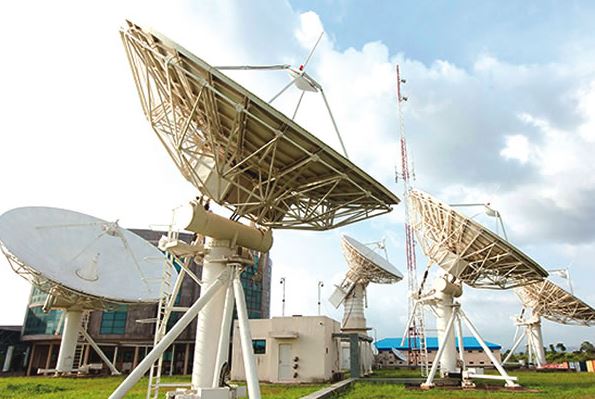Nigerian telecom providers are stepping up talks to investigate novel approaches, such as satellite technology and renewable energy sources, to lessen the industry’s spiralling operating costs.
This announcement was made by telecom industry insiders who spoke at the Nairametrics Industry Spotlight webinar over the weekend of “Beyond Connectivity: Telcos and the Future of Financial Inclusion in Nigeria.”
Read also: Nigeria Telcos begins barring SIMs not linked to NIN
Diesel contributes to the high cost of production
Chukwuebuka Ezewuzie, Senior Manager of Growth and New Business Tech Platforms at MTN stated that, aside from foreign exchange issues, a significant portion of telcos’ operating expenses went towards funding diesel-powered infrastructure.
Since the infrastructure that runs on petrol and diesel is so expensive, there is currently a lot of progress in adopting renewable energy. So, how will we power this equipment using the free energy from the sun and wind to cut costs? He claimed that “the telcos are currently exploring this as one of the key areas.”
Diesel generators provide power for much of the telecom infrastructure, including base stations, data centres, relay stations, and transmission equipment. This means that operating expenses are high.
According to the National Bureau of Statistics (NBS), telecommunications companies spent around N429.43 billion in 2023 on fuelling those base stations, a 34.57 per cent increase over the N319.11 billion spent in 2022.
In Nigeria, the average cost of a litre of diesel is currently N1,379, though there are significant regional differences.
The fuel telecom carriers use to power their sites is estimated to be around 40 million litres per month.
A McKinsey analysis states that telecoms might save 15% to 30% on their annual energy expenditures by switching to solar power, depending on their existing energy management techniques and the degree of solar integration.
Read also: MTN Ghana launches ‘Yellow Biz 4-in-One’ to help SMEs with advanced 4G internet solutions
Satellite to replace costly fibre optic
According to Ezewuzie, telecoms were also considering satellite technology as a feasible substitute for costly fibre optic installations.
He claimed that considering the high expenses of installing fibre, satellite coverage would offer an affordable way to increase network coverage.
According to Ezewuzie, MTN, the largest mobile phone company in Nigeria with around 80 million users, had started talking to Elon Musk’s Starlink about integrating the technology into its current networks.
Nkem Oni-Egboma, the former CFO of 9mobile, emphasised the need for creative strategies in lowering energy usage in the industry.
According to Oni-Egboma, “reducing energy consumption is crucial for the sustainability of telecom operations.” “Media gateways and data centres are streamlining their operations to cut expenses, which in turn lowers the cost of their goods and services for customers.”
Dr Ayotunde Coker, the CEO of Open Access Data Centre, stated that the industry was facing high input costs as a result of inflation, an incapacity to modify pricing, and the trickle-down effect of the cost of living crisis.
Coker says that in order to overcome those obstacles, telcos should concentrate on developing innovative value-added services, customising solutions for specific market niches, identifying discrepancies in affordability, and offering graduated goods and services.




